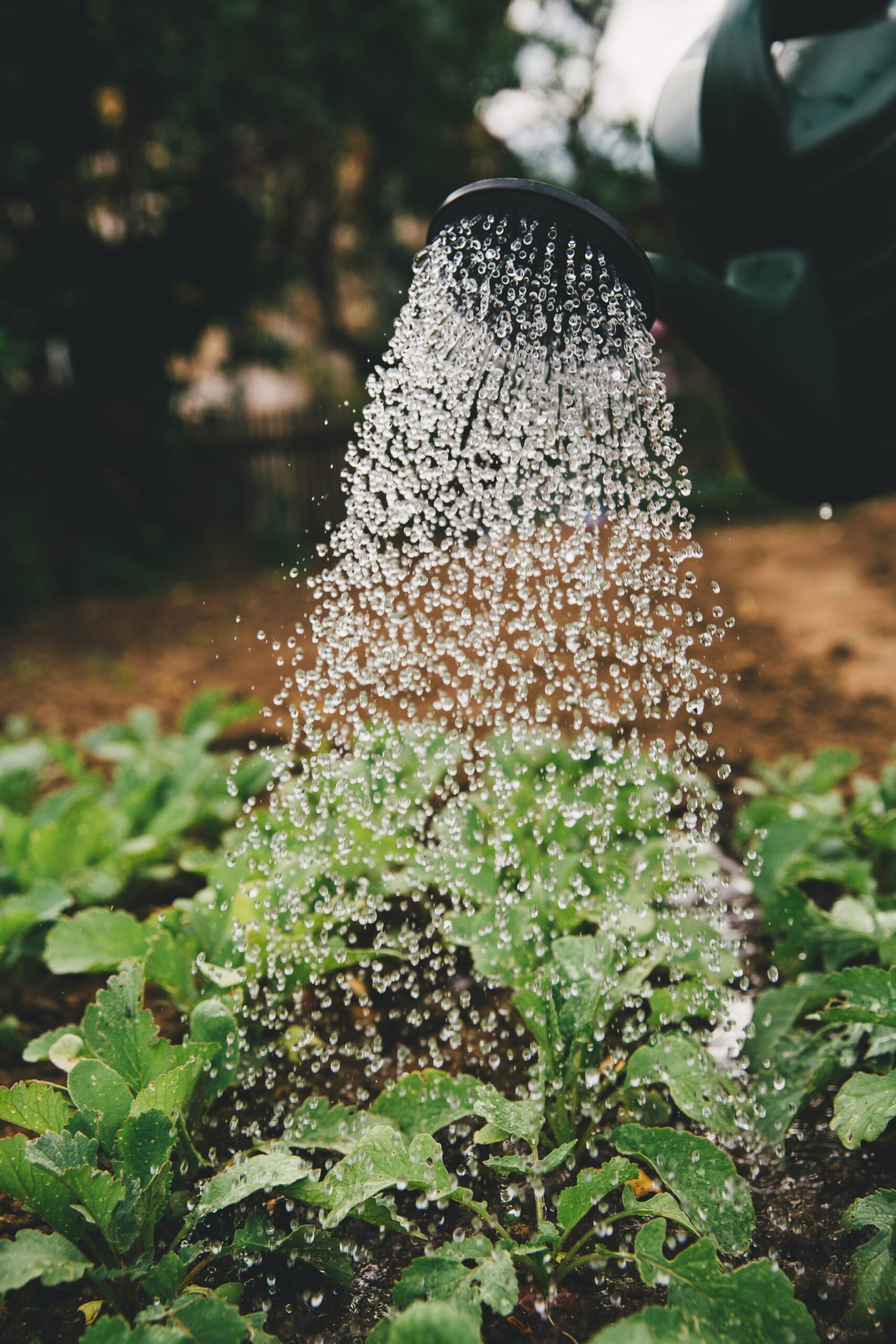
The Therapeutic Benefits of Gardening: Cultivating Health and Happiness
Gardening is more than just a hobby or a way to beautify your surroundings. It offers a wide range of therapeutic benefits that can improve your physical, mental, and emotional well-being. Whether you have a spacious backyard or just a small balcony, cultivating a garden can bring you a sense of joy, peace, and fulfillment. In this article, we will explore the various ways in which gardening can positively impact your health and happiness.
One of the primary benefits of gardening is the physical activity it involves. Digging, planting, and weeding are all forms of exercise that can help you stay active and maintain a healthy weight. The repetitive movements and stretching required in gardening can improve flexibility and strength. Additionally, spending time outdoors exposes you to natural sunlight, which is a great source of vitamin D, essential for bone health and immune system function.
Moreover, gardening has been shown to have a positive impact on mental health. The act of nurturing plants and watching them grow can be incredibly rewarding and fulfilling. It provides a sense of purpose and accomplishment, boosting self-esteem and confidence. The process of planning and designing a garden can also be a creative outlet, allowing you to express yourself and unleash your imagination.
Furthermore, being in nature has been proven to reduce stress and anxiety. The sights, sounds, and smells of a garden can create a calming and peaceful environment, helping to alleviate the pressures of everyday life. The act of gardening itself can also be a form of mindfulness, as it requires you to be fully present and focused on the task at hand. This can help to quiet the mind and promote relaxation.
In addition to the physical and mental benefits, gardening can also have a positive impact on your emotional well-being. Studies have shown that spending time in nature and engaging in activities like gardening can improve mood and reduce symptoms of depression. The act of tending to plants and being surrounded by greenery can evoke feelings of happiness and contentment.
Furthermore, gardening can also provide a sense of connection and community. Joining a gardening club or participating in community gardening projects allows you to connect with like-minded individuals who share a passion for plants and nature. This sense of belonging and social interaction can contribute to overall happiness and well-being.
In conclusion, gardening is not just a hobby, but a therapeutic activity that can have profound effects on your health and happiness. From the physical benefits of exercise and exposure to sunlight, to the mental and emotional benefits of nurturing plants and being in nature, gardening offers a holistic approach to well-being. So, whether you have a green thumb or are just starting out, consider cultivating a garden and experience the transformative power of gardening.
1. Stress Relief and Relaxation
One of the most significant therapeutic benefits of gardening is its ability to reduce stress and promote relaxation. Spending time in nature, surrounded by plants and flowers, has a calming effect on the mind and body. The rhythmic tasks of planting, weeding, and watering can help you focus on the present moment and let go of stress and worries. Gardening provides a sense of peace and tranquility that can help you unwind after a long day.
Research has shown that gardening can lower cortisol levels, the hormone associated with stress, and increase the production of endorphins, the “feel-good” chemicals in the brain. This natural stress relief can have a positive impact on your overall mental health and well-being.
In addition to reducing stress, gardening also offers a unique form of relaxation. As you dig your hands into the soil and connect with nature, you can experience a sense of grounding and mindfulness. The act of tending to plants and watching them grow can be incredibly soothing and rewarding. It allows you to slow down and appreciate the beauty of nature, fostering a sense of serenity and contentment.
Moreover, gardening provides an opportunity to disconnect from the digital world and immerse yourself in the physical world. In today’s fast-paced society, many of us are constantly bombarded with notifications, emails, and social media updates. Engaging in gardening allows you to step away from screens and reconnect with the natural world. This break from technology can help reduce mental fatigue and restore cognitive function.
Furthermore, the physical activity involved in gardening can contribute to relaxation. The gentle movements of bending, stretching, and lifting can help release tension in the muscles and promote a sense of physical well-being. Gardening can serve as a form of exercise, improving cardiovascular health and strengthening muscles. The combination of physical activity and being in nature creates a powerful synergy that enhances relaxation and rejuvenation.
Overall, gardening offers a multifaceted approach to stress relief and relaxation. It combines the therapeutic benefits of being in nature, engaging in mindfulness, disconnecting from technology, and incorporating physical activity. Whether you have a small window box or a sprawling garden, taking the time to cultivate and nurture plants can have a profound impact on your mental and physical well-being.
2. Physical Exercise and Fitness
Gardening is a physical activity that engages your entire body. Digging, planting, and lifting pots or bags of soil require strength and endurance. By regularly tending to your garden, you can improve your physical fitness and flexibility. It is a great way to incorporate exercise into your daily routine without the need for a gym membership or specialized equipment.
Studies have shown that gardening can burn calories, strengthen muscles, and improve cardiovascular health. It is an excellent form of low-impact exercise for people of all ages and fitness levels. Spending just 30 minutes to an hour in the garden can provide you with a moderate-intensity workout while enjoying the beauty of nature.
Additionally, gardening offers a range of movements that work different muscle groups. When you dig the soil, you engage your leg muscles, core, and upper body. Planting seeds or seedlings requires fine motor skills and coordination, which can improve dexterity and hand-eye coordination. Lifting heavy objects like bags of soil or pots can enhance your upper body strength and build muscle tone.
Moreover, gardening involves repetitive motions such as raking, weeding, and pruning, which can improve joint flexibility and range of motion. These activities promote better posture and balance, reducing the risk of falls and injuries. The act of bending, kneeling, and reaching while gardening also helps to improve flexibility and strengthen the muscles in your back and legs.
In addition to the physical benefits, gardening has been found to have positive effects on mental health. Spending time outdoors and connecting with nature can reduce stress, anxiety, and depression. The act of nurturing plants and watching them grow can provide a sense of accomplishment and satisfaction. Gardening can also be a mindful activity, allowing you to focus on the present moment and find peace and tranquility amidst the hustle and bustle of daily life.
Furthermore, gardening offers opportunities for social interaction and community engagement. Joining a gardening club or participating in community gardening projects allows you to connect with like-minded individuals and share your passion for plants and gardening. This social aspect can contribute to a sense of belonging and well-being.
In conclusion, gardening is not just a hobby but a holistic activity that benefits both the body and mind. It provides a way to stay physically active, improve fitness and flexibility, and strengthen muscles. Gardening also offers mental health benefits, promoting stress reduction and a sense of well-being. So, grab your gardening tools and get ready to reap the numerous rewards that come with nurturing your own piece of nature.
3. Connection with Nature
In today’s fast-paced and technology-driven world, many of us have become disconnected from nature. Gardening offers an opportunity to reconnect with the natural world and develop a deeper appreciation for the environment. It allows you to observe the cycle of life firsthand, from planting seeds to nurturing plants to witnessing their growth and blooming.
Spending time in nature has been linked to numerous health benefits, including reduced stress, improved mood, and increased creativity. Gardening provides a sense of purpose and connection to something greater than ourselves. It reminds us of the importance of sustainability and taking care of our planet.
When we immerse ourselves in gardening, we are not only tending to the plants but also immersing ourselves in the sights, sounds, and smells of the natural world. The fresh scent of soil, the gentle rustling of leaves, and the vibrant colors of flowers all contribute to a sensory experience that can be deeply calming and rejuvenating.
Moreover, gardening allows us to observe and appreciate the intricate web of life that exists in our own backyard. As we plant flowers to attract pollinators like bees and butterflies, we become more aware of the interconnectedness of all living beings and the role we play in supporting biodiversity.
By creating a garden, we are creating a sanctuary for both ourselves and wildlife. Birds, insects, and other creatures are drawn to the plants and habitats we create, providing us with the opportunity to observe and learn from their behaviors. This connection with nature helps to foster a sense of wonder and awe, reminding us of the beauty and complexity of the natural world.
Furthermore, gardening encourages us to slow down and be present in the moment. In a world filled with constant distractions, tending to a garden requires focus and patience. It teaches us to be mindful of our actions and to appreciate the small miracles that occur in nature every day.
Overall, gardening offers a unique opportunity to reconnect with nature and find solace in the beauty and tranquility of the natural world. It allows us to cultivate not only plants but also a deeper sense of connection, purpose, and appreciation for the environment. So, whether you have a small balcony or a sprawling yard, consider starting a garden and experience the many benefits it has to offer.
4. Mental Well-being and Cognitive Function
Gardening has been shown to have a positive impact on mental well-being and cognitive function. It can help reduce symptoms of anxiety and depression and improve overall mental health. The act of nurturing plants and watching them thrive can boost self-esteem and provide a sense of accomplishment.
Being in a garden environment stimulates the senses and engages the mind. The colors, textures, and scents of plants can evoke positive emotions and enhance cognitive function. Gardening also encourages problem-solving skills and creativity, as you find solutions to challenges such as pests or plant diseases.
Moreover, spending time in nature has been proven to have numerous mental health benefits. The fresh air and sunlight can increase the production of serotonin, a neurotransmitter that promotes feelings of happiness and well-being. This can help alleviate symptoms of depression and improve mood.
In addition, gardening provides a form of physical exercise, which has been linked to improved cognitive function. When you engage in activities such as digging, planting, and weeding, you are not only working your muscles but also stimulating your brain. This can enhance memory, attention, and problem-solving abilities.
Furthermore, gardening offers a sense of purpose and connection to the natural world. It allows individuals to take a break from the fast-paced, technology-driven modern life and reconnect with the rhythms of nature. This can provide a sense of tranquility and inner peace, reducing stress and promoting mental well-being.
Overall, gardening is a holistic activity that benefits both the body and the mind. It provides a therapeutic outlet for stress relief, promotes mental well-being, and enhances cognitive function. Whether you have a small balcony garden or a large backyard, spending time tending to plants can have a profound positive impact on your overall health and happiness.
5. Social Interaction and Community
Gardening can be a social activity that brings people together and fosters a sense of community. Whether you join a community garden or simply share your gardening experiences with friends and neighbors, it provides opportunities for social interaction and connection.
Working alongside others in a garden setting allows for the exchange of knowledge, ideas, and experiences. It can create a sense of belonging and support as you learn from each other and share in the joys and challenges of gardening. Gardening communities often organize events, workshops, and gatherings, providing further opportunities for social engagement.
Community gardens, in particular, are spaces where people from diverse backgrounds come together to cultivate the land collectively. These gardens serve as meeting points for individuals with a shared interest in gardening, promoting social interaction and collaboration. In these communal spaces, people not only share their gardening expertise but also develop friendships and support networks.
Moreover, community gardens often organize educational programs and workshops to enhance gardening skills and knowledge. These events bring gardeners together, providing a platform for learning and growth. Whether it’s a workshop on organic gardening techniques or a lecture on sustainable practices, these activities facilitate social interaction and the exchange of ideas.
Additionally, community gardens can play a vital role in addressing food insecurity and promoting healthy eating habits. Many community gardens donate a portion of their harvest to local food banks or organize community meals using the produce grown in the garden. These initiatives further strengthen the sense of community and social responsibility among gardeners.
Beyond community gardens, gardening enthusiasts also find ways to connect and socialize. Gardening clubs and societies organize regular meetings, where members can share their experiences, seek advice, and learn from guest speakers. These gatherings provide a platform for like-minded individuals to come together, fostering a sense of community and camaraderie.
Furthermore, the rise of social media platforms dedicated to gardening has expanded the opportunities for social interaction among gardeners. Online communities and forums allow individuals to connect with fellow gardeners from around the world, sharing their successes, challenges, and tips. These virtual spaces provide a sense of belonging and support, even for those who may not have access to physical gardening communities.
In conclusion, gardening not only nurtures plants but also cultivates social connections. Whether through community gardens, gardening clubs, or online communities, it offers a platform for people to come together, share knowledge, and form lasting friendships. The social aspect of gardening adds an enriching dimension to the hobby, making it a truly rewarding experience.

